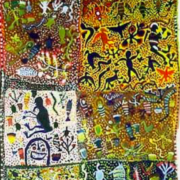Presentation, Individual, Group and Nature
The quality of our future depends more and more on environmental balance and its stability. Nevertheless, there’s a contradiction that’s difficult to explain, without entering into complex psychological processes – between the widespread interest the public opinion has for environmental issues and, on the other hand, how little this results in specific awareness, or in a different way of behaving, and ultimately in putting strong pressure on political leadership. In point of fact, how serious is the environmental issue? The greenhouse effect? Degenerative diseases? Or energy resources? These are problems that are already a reality, and today imply a dramatic prospect for our species. The greenhouse effect isn’t just a simple idea that represents the phenomenon as a gradual rise of the temperature of the planet’s soil, the melting of the polar ice cap or other flights of fancy. Today the stability of the climatic cycle is seriously effected, something our small country pays for every year Read more

